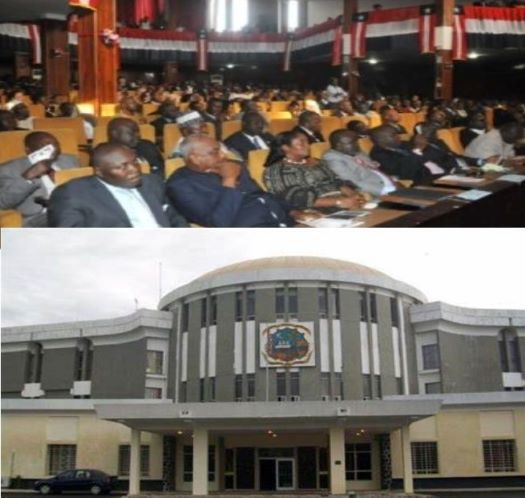By Our Staff Writer
“Despite the huge financial support to the legislature, the body has no official publication on its activities nor an official website for public information,’ says a study done by Naymote Partners for Democratic Development with support from the US-based National Endowment for Democracy (NED).
The report titled, “Legislative Digest 2022, says: “The assessment did not also find any voting record, making it nearly impossible for citizens to track the legislative and voting decisions of their elected representatives.”
Liberian lawmakers have over the years strongly resisted calls for the body to be audited by either of the two integrity institutions—the General Auditing Commission (GAC) or the Internal Audit Agency (IAA)).
Most of the Lawmakers appear to be in support of auditing the body. But one of few of them who have made his support for the move public is River Gee County Representative, Francis Dopoh whose voice has since been drowned by the majority.
Back in June 2018, Rep. Dopoh said: “We need to have an audit of the legislature so that we can get the kind of financial autonomy that we have been yearning for over the years,” lawmaker Dopoh participants at a one day budget symposium on the country’s 2018/2019 fiscal budget that is expected to take effect by June 30th 2018 and ends July 1, 2019.”
Naymote in its latest report published total breakdown of amounts allotted in the national fiscal budget for themselves over a period of three years—from 2019-2021, amounting to a whooping US$164,282,257.
Table 4. Annual budget of the Legislature, 2018 – 2021
| Annual budget of the Legislature per fiscal year (USD), 2018 – 2021 | |
| Fiscal year | Amount |
| FY2018-19 | 53,990,836 |
| FY2019-20 | 38,893,165 |
| FY2020-21 | 44,603,304 |
| Special Budget 2021 | 26,794,952 |
| Total | 164,282,257 |
In its report, Naymote has therefore urged the Legislature to submit themselves to audit.
“The legislature should submit itself for a full-scale financial and system audit as required of all other public institutions,” Naymote says.
The first edition of “Legislative Digest 2022 also criticized Lawmakers for not being effective in exercising its Legislative oversight responsibilities over government ministries and agencies, which is one of the Capitol Building three cardinal responsibilities. The other two includes law making and representation.
“Similarly, it was impossible to access reports of ministries and agencies at the legislature mainly because the ministries and agencies have not been submitting periodic reports to that body since 2018. This further indicates that the legislature has been derelict in exercising its oversight responsibilities over the Executive branch.”
Below are the conclusion and recommendations made in the Naymote report:
Conclusion and recommendations
The findings of this report reveal the activities of the legislature, the output from those activities in the forms of legislative instruments such as bills and resolutions. Furthermore, the findings reveal that during the reporting period citizens interacted with the legislature through public hearings and by submitting petitions to the legislature on various issues. These developments seem remarkable. However, the high number of executive or secret sessions held during the reporting period is concerning and indicate a lack of openness and transparency in the workings of the legislature.
Also, an important issue of concern is the highly unequal representation of men and women in both chambers. While the electoral process is theoretically open for all citizens to participate, the disproportionate representation of men in the legislature is an indication that other social and economic factors continue to limit the potentials of women in ascending to elected offices in the country.
This initiative could not report on a number of factors including quality of oversight, expenditure pattern, and tracking of various legislation due to the dearth of information from the legislature and the lack of a public source of information (such as a newsletter or website) on legislative activities. Nonetheless, it is hoped that citizens and civil society organizations would find this report useful in their engagements with the legislature on issues of accountability and democratic development in Liberia. Based on the findings of this report, the institution recommends the following:
- that the legislature implements immediate institutional reforms to strengthen its various oversight committees, and establish the appropriate systems for transparency, accountability, including limiting “executive/secret” sessions to only matters with serious implications for national security and defense as required under the law.
- That the institution setup a functional website, ensure voting records of members of that body is made public and available to assess performance of its members.
- The legislature should submit itself for a full-scale financial and system audit as required of all other public institutions.
- That the legislature makes deliberate effort to support constitutional reforms in support of affirmative action that increases the proportion of women in both houses.
- That the legislature, as part of its oversight responsibilities, ensures ministries, agencies and commissions submit periodic reports that are vetted and made available to the public.

